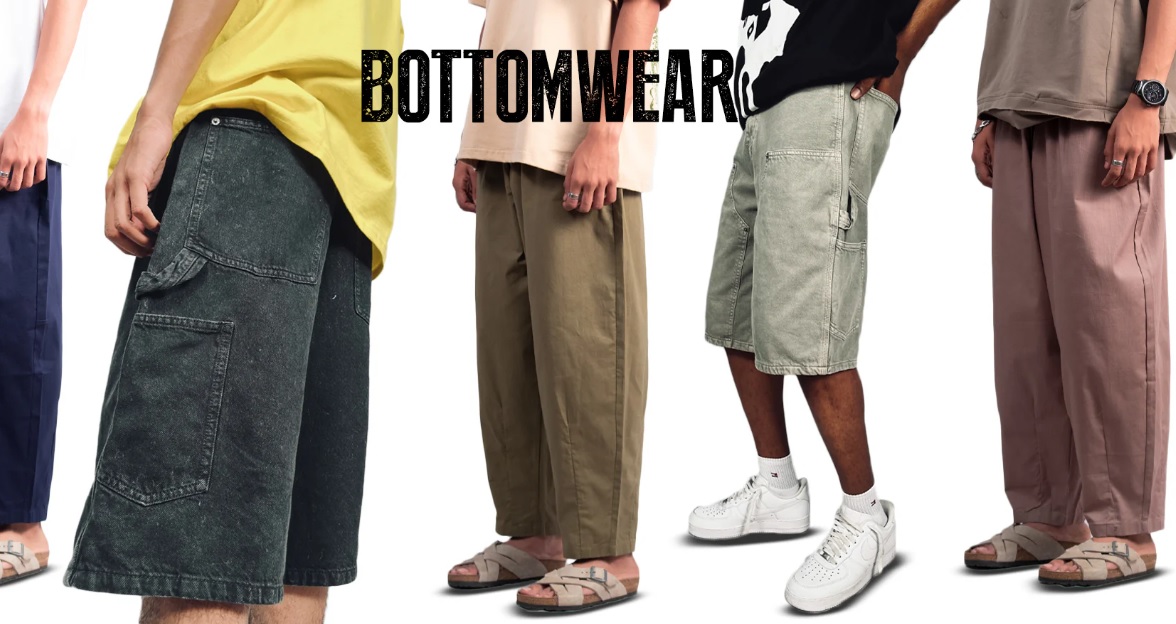
The US bottomwear market, once dominated by denim and athleisure, is undergoing a change. With an estimated value of over $40 billion, this sector is witnessing a shift in consumer preferences, fashion trends, and overall market dynamics.
Recent years have seen a distinct change in the US bottomwear market. American consumers are increasingly moving away from activewear, sweats, and denim, and leaning towards more polished, casual styles like chinos and dressy trousers. This shift has led to a decline in denim sales, the third-largest apparel category in the US, despite the overall apparel market showing signs of improvement.
Denim sales on decline
Valued at nearly $17 billion, denim remains a dominant force in the bottomwear market, but its sales have recently lagged behind the broader apparel market. While the overall apparel sector is showing signs of recovery with projected growth in 2025, denim sales declined by 4 per cent year-over-year in the first quarter of 2024.
The biggest loser in this evolving market is undoubtedly the skinny jean. Once a wardrobe staple, skinny jeans have seen a significant decline in popularity, particularly among mass-market brands. This decline is partly attributed to the rise of looser, more relaxed fits that align with the current "polished, casual" trend. Anincrease in demand for "polished, casual" styles like dressy trousers and casual pants, reflect a broader shift in consumer tastes away from athleisure and denim.
Fashion and trend drivers
The rise of "polished, casual" wear underscores a growing desire for versatile clothing that bridges the gap between formal and casual attire. As workplaces become more relaxed and social events embrace a less rigid dress code, consumers are seeking bottomwear that offers comfort and style, suitable for a variety of occasions.
Key takeaways
• Diversification of styles: The bottomwear market is becoming increasingly diverse, with over 60 different combinations of rises and leg fits driving sales volume. This offers consumers greater choice but poses challenges for brands in terms of inventory planning and assortment management.
• The rise of premium denim: Premium and designer denim brands are outperforming the overall denim market, highlighting a growing preference for high-quality, on-trend styles.
• Impact of footwear trends: Footwear trends play a crucial role in shaping the bottomwear market. The resurgence of high shaft boots, for instance, could influence the demand for certain denim styles like skinny jeans.
Meanwhile, the enduring popularity of premium and designer denim brands like Agolde, Frame, and Mother highlights a growing preference for high-quality, trend-forward denim. These brands have successfully navigated the changing market by swiftly moving away from skinny jeans and embracing a wider range of silhouettes.
The US bottomwear market thus is undergoing a change, driven by evolving consumer preferences, shifting fashion trends, and the growing demand for versatile, comfortable clothing. While denim remains a significant player, its dominance is being challenged by the rise of "polished, casual" styles. The key to success in this changing landscape lies in understanding consumer needs, adapting to emerging trends, and offering a diverse range of high-quality products that cater to various tastes and lifestyles.












